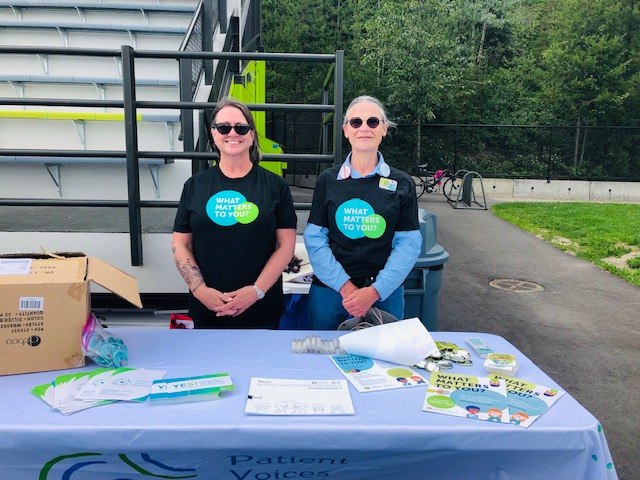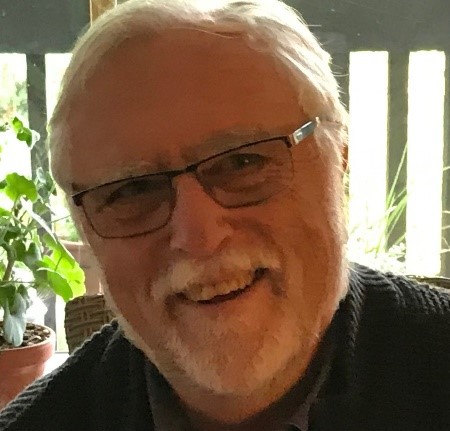Posted
Categories: My Experience
As a palliative patient, Sally Rosevear’s husband passed away at home without comfort measures, emotional support or assistance with personal care, despite her efforts to get him the best treatment possible. She decided to share their story to improve health care and help prevent other patients from experiencing what she and her husband went through.

As a retired registered nurse, my renewed interest in the delivery of health care began in 2014 during my husband Jack’s hospitalization in the final few months of his life.
It was complications of Jack’s long-standing coronary artery disease that initially brought us to the emergency department. Jack also had Alzheimer’s and we had managed successfully at home for several years with me as his sole caregiver. But now the situation required hospitalization.
Throughout Jack’s care journey, I tried to answer health care professionals’ questions, sometimes over and over again. However, when I had explanations or questions for them, there seemed to be few who would listen. There was a definite lack of effective communication during his hospital stay, as well as insufficient discharge planning, even though I had requested a team meeting about this. We ended up returning to the hospital less than 24 hours after discharge.
Our experience during the second admission was even less supportive. Jack was now considered palliative. Again, there was a lack of communication, and I felt this negatively impacted the care my husband received. There was no provision for comfort measures or assistance with personal care for Jack, and certainly no emotional support for either of us. After discharge home, we would have to wait three days to be admitted into Northern Health’s palliative care program.
My husband reached the end of his life at home, under less than satisfactory conditions. I was devastated, more so by how many things had been mishandled than by his death itself, as now, at least, he wouldn’t have to endure any more suffering. In spite of my best efforts, things had gone terribly wrong.
Sharing their patient and caregiver experience to help others
I didn’t want anyone else to experience what Jack and I had been through. The system had failed us, but it wasn’t too late for me to speak out for others. If I didn’t, would I be able to live with myself? So began my mission to speak up about what Jack and I had experienced within the health care system.
After my initial grieving, I gathered my thoughts and expressed them in a letter to Northern Health’s Patient Care Quality Office. Unless I made them aware of our experience, and changes were implemented, it was likely that other patients and their families would suffer similar outcomes. And at the recommendation of a health care professional, I joined the Patient Voices Network.

I have been an active patient partner for nearly four years now and have participated in a variety of engagements. I consider it a privilege to have had a role in helping to create change in the delivery of health care through collaboration with health care professionals on numerous occasions. I’ve been a speaker for a module on palliative and end-of-life care, and was part of the 10th anniversary video on “What Matters to You?” for PVN. I’ve also made a presentation about patient journey mapping at Quality Forum 2018 in partnership with one of Northern Health’s quality improvement leads, explaining how our collaboration impacted her work and my healing.
More recently, I was on a planning committee for the celebration of the 2019 Canadian Patient Safety Week throughout Northern Health, and the theme this year was “Conquer the Silence.” My participation on this committee was the impetus for me to write this blog post. I found the statistics regarding the number of Canadians affected by preventable health care harm – one in three, according to the Canadian Patient Safety Institute – alarming and unacceptable, and silence plays a major role in that. So, if something looks wrong, feels wrong, or is wrong, speak out! You can effect improvements or even save a life.

Author: Sally Rosevear
Sally grew up in Vancouver and obtained her RN from Vancouver General Hospital. During her years as a nurse, she was an active member of the Registered Nurses Association of British Columbia and later a founding member of the British Columbia Nurses’ Union. While raising her family, she also had a second career as a special needs teaching assistant. Having retired early to be a caregiver to her husband, she still enjoys hiking, snowshoeing and gardening. She belongs to a seniors’ choir, volunteers and continues to be active with PVN. In her quiet moments, she reads, knits and listens to all types of music.
Although they no longer live in the same city, her two grown sons, their partners and her two-and-a-half year old grandson provide a strong incentive for her to stay active and involved in her community.


